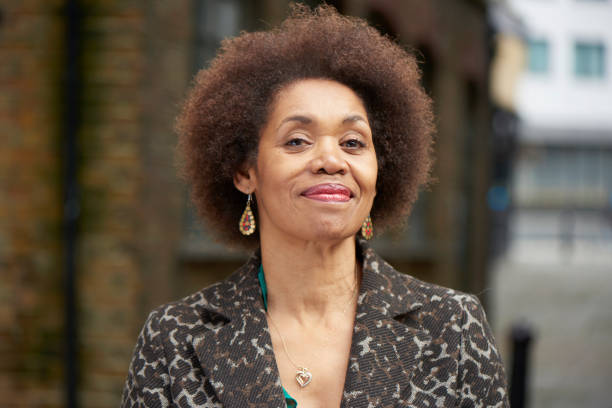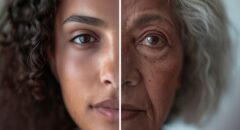
Hot flashes and night sweats are uncomfortable symptoms commonly associated with menopause. There are, however, other subtle symptoms of menopause, such as itchy breasts.
What Causes Itchy Breast?
Hormonal changes that occur during menopause can cause breasts to become painful or itchy. Although many menopause symptoms (such as hot flashes, urine leakage, and dizziness) are more common in Black women, “somatic” symptoms (such as breast discomfort, tenderness, and itchy breasts) are not influenced by race.
Other somatic symptoms include swelling, weight gain, appetite changes, and headaches. With age, Black women often report that their menopause symptoms worsen, while in white women, there is often a decrease in menopause symptoms with age.
Somatic symptoms associated with menopause worsen in women between 45 to 47, regardless of race. Having longer menstrual cycles and poor physical health increases the likeliness of breast itchiness and other somatic symptoms.
During menopause, hormone levels (such as estrogen) decrease, causing itching and other breast changes including:
- Breast tenderness
- Sore nipples
- Shrinkage of breast tissue
- Breast or nipple itching
A decrease in estrogen levels during menopause not only causes breast changes, but hormone changes can also cause the skin to shrink (atrophy), becoming thin and dry. Thinning skin can be very sensitive and dry skin is prone to itching.
RELATED: Taking the Heat Off: Home Remedies for Menopause Relief
Home Remedies
There are some things you can do at home such as:
- Avoid man-made fabrics with chemicals that can irritate the skin
- Wear natural cotton fabrics that help absorb moisture and keep the skin dry
- Replace harsh soap and laundry detergent with mild, sulfate-free, unscented, and natural dye-free versions
- Use hypoallergenic skin products such as Cetaphil and CeraVe skin cleansers and moisturizers which are available over the counter; they are mild, sulfate and dye-free
- Keep the skin under and between the breasts clean and dry (sweating worsens itchiness and causes redness and irritation of the skin)
- Ensure your bra properly fits and is made of natural material (such as cotton); wearing an ill-fitting bra can impede air circulation and worsen itchiness and irritation
- Apply mild, hypoallergenic, medicated itch-relief lotion such as those made by CereVe or Cetaphil
- Take an oatmeal bath using a natural colloidal oatmeal bath (finely ground oatmeal, used to help alleviate itchy skin)
RELATED: Managing Menopause Symptoms with Meditation
Preventing Itchy Breasts
Many home remedies (such as keeping the skin clean and dry) will help prevent itchy breasts; additional prevention measures include:
- As your breast size changes (from weight fluctuation or menopause), get measured regularly to ensure your bra size is correct.
- Decrease the room temperature, particularly at night
- Prevent dry skin by using a room humidifier (especially if you live in a dry, cold climate)
- Apply a natural, hypoallergenic sunscreen to skin that is exposed to direct sun (such as in a bathing suit)
When To Call the Doctor
Generally, itchy breasts should only last a few days, or up to several weeks at most. If you notice a rash or discoloration of the breasts or when itchiness lasts longer than several weeks, it’s essential to consult with your doctor.
Itchiness and skin changes (like discoloration of the breasts) can signify a possible symptom of a severe condition like inflammatory breast cancer (IBC).
Other symptoms that warrant a physician’s visit include:
- A rash on or underneath the breasts
- A lump or unusual firmness of the breast tissue, or under the arm
- An increase in the size or change in the breast shape
- Discharge from the nipple
- Itchiness that is not relieved with home remedies
- Itchiness of the nipple (particularly when there is pain, tenderness or swelling along with itching)
- Severe itchiness or itchiness that lasts longer than normal
- Red, dimpled, or puckered skin
A Word from Black Doctor.org
Black Doctor.org realizes menopause symptoms—such as itchy breasts—can be very frustrating and may even be embarrassing at times. Keep in mind that you are not alone. Somatic symptoms (such as itchy breasts) occur as part of a natural life period. Be sure to talk to your healthcare provider to get advice and support and discuss options for symptom relief.








